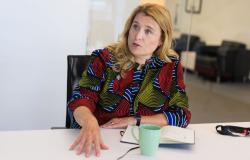
I recently read an article by The Press which shook me.
We were talking about a Lebanese family who had settled in Laval for a few months. I quote the mother: “We love Laval. It’s like we’re in Lebanon! There are more Arabs than Quebecers here.”
The journalist completes her remarks: “This multiculturalism is an asset for her husband […]who does not yet master French well.” Before giving the mother the floor again: “Here, he is comfortable with the language.”
Immigration
First thing: for this lady, Laval is not culturally Quebecois. We also understand that it is not satisfied with a strictly legal definition of what a Quebecer is. For her, a Quebecer belongs to the historic French-speaking majority. And she is delighted that Quebecers are in the minority. This allows him to live in his home community without taking on the habit of his host country.
She wants the benefits of Quebec society, without suffering from Quebecers, who, if too numerous, would burden her. I want to write: happy to know that no one bothers her!
Second thing: this situation means that her husband does not have to speak French, that his lack of mastery of the national language is not an obstacle to his daily life. Let’s learn a lesson from this: despite the government’s big speeches, French is not necessary in Quebec. For strangers to feel at home in our home, we must now feel foreign in our own home. The journalist presents this as good news. Surprised?
Disappearance
Let us summarize: this family, Christian, moreover, which could theoretically facilitate its integration, arrives in a country so demographically modified that it no longer has to make an effort at cultural integration to live there. The journalist, proud to play happy inclusiveness, finds this wonderful.
Let us learn a lesson from this jovial, unintentionally revealing article: mass immigration condemns us to extinction.





